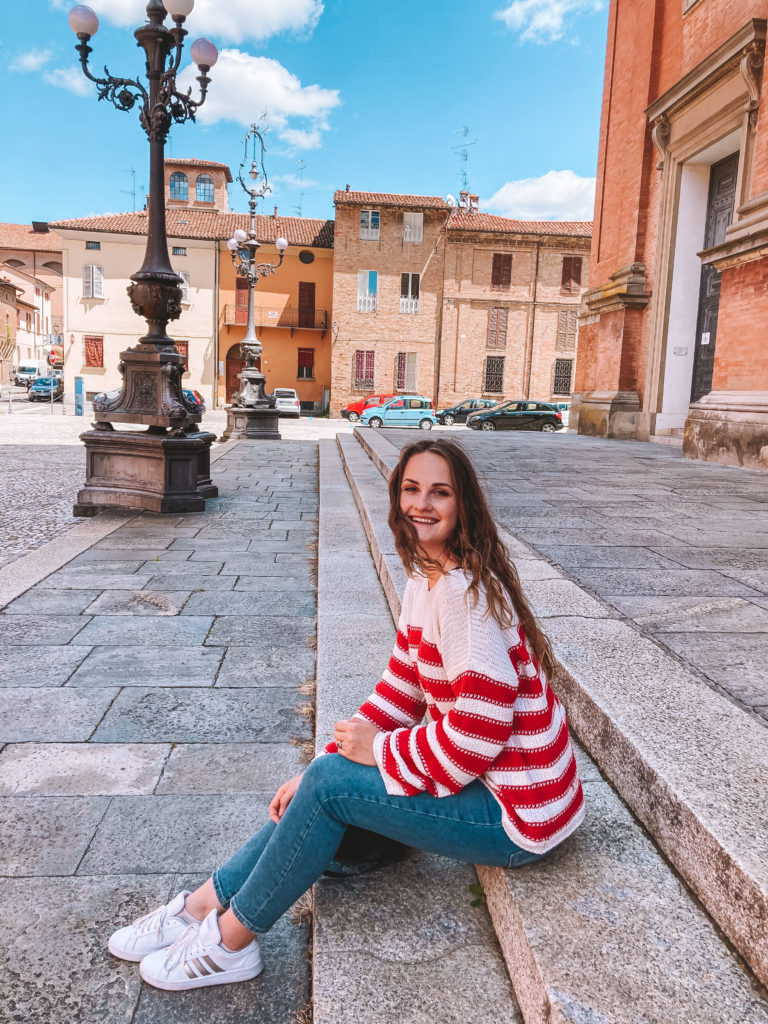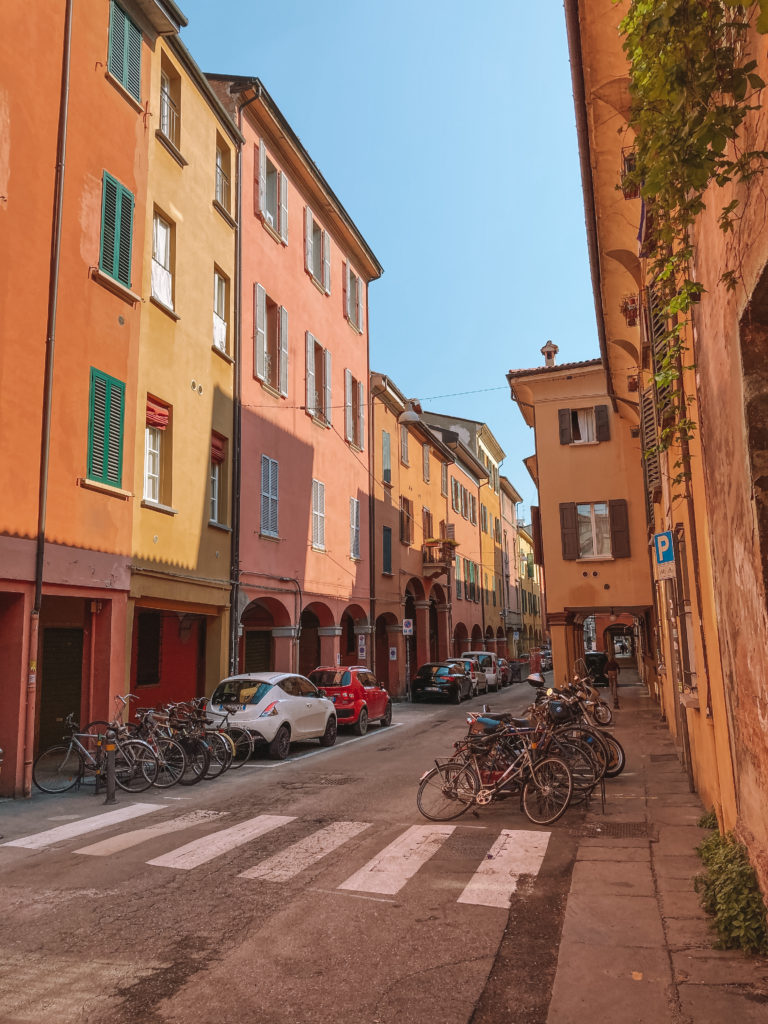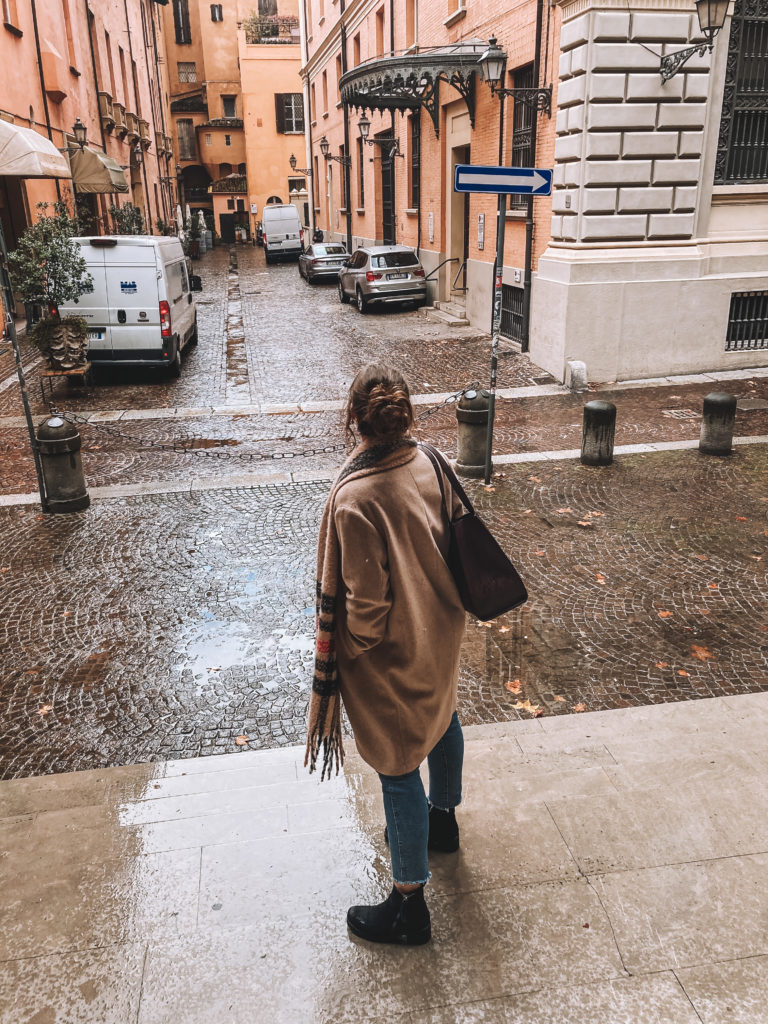Hello! This week’s post is another in the Expat Wisdom series. Incase you’re new here, the Expat Wisdom series is something where I share the story of one of you guys every month! I get you to write about your expat move and share some of your wisdom with this community. This month, we are hearing from Valeria, and expat who moved to Italy. I enjoyed reading all of her wisdom about life in Italy, from finding an apartment to meeting new people, she has it all covered. Let’s get into her story!
How it all began
When I get asked how I moved to Italy, the first (and the most real) answer is: I never planned it. Seriously, I’ve been to Italy a few times before on holidays, but I’ve never ever thought I’d end up living there. But I should start this story from the beginning.
I was born and grew up in the beautiful seaport city of Odessa, Ukraine. Since I was little I’ve been travelling a lot around the world with my family and I loved being on the road. I blame some potentially nomadic ancestors for my desire to move constantly – because I knew I was going to move abroad one day when I was about eleven or twelve years old. I don’t remember well why or how that thought came to me (although maybe it happened during a trip to Rome – very symbolic, isn’t it?), but as I was growing up that desire grew with me.
When I was nineteen, I was looking for a place to move to for university. Going to school in a foreign country has always been my goal, and it seemed like a good option to start my adventure abroad. However, I wasn’t thinking of Italy – yet. I was planning to go to France, as I spoke some French and was even accepted to a university there. But, sky-high rents in Paris and the overall difficulty of getting a place to live there was taking its toll on me. At the same time, my parents, who have always had the same nomadic urges, were thinking of moving abroad as well (they were considering Spain though, and Italy was still out of question). Coincidence or not (I’d better call it destiny), I ended up on holiday in Italy together with my family that summer before I was supposed to move to France. We were all quite stressed by the prospective moves and all the complications I was having in Paris, when all of a sudden a crazy idea struck us: what if we all moved to Italy? It was probably my mother voicing that idea, but I remember being sceptical about it at the beginning. Don’t ask me why – to this day I don’t have an answer (I blame a stubborn Capricorn in me that steps in every time I least need it to). Long story short, after being turned down for a hundredth time in Paris, I’ve decided to give it a go. I followed my family (we’ve always been very tight-knit) and was set on staying in Italy for a year – my initial goal was to learn a new language and to have this experience of living in Italy, before eventually moving on.
Well, it’s been six years now! I could have never said I’d stay in Italy for that long, but life tends to surprise us in the most curious ways. Italian beauty, lifestyle and friendliness have totally convinced me to stay.

Finding an apartment
Finding an apartment in Italy shouldn’t be a problem if you’re working there full-time, although it’s got a bit tougher in recent years – some landlords would now want you to have an indeterminate work contract, meaning you aren’t easily fired from your job. Six years ago when I moved with my family it wasn’t such a big deal (even though may parents are business-owners in Ukraine and didn’t have a job in Italy, it was enough to show proof of work abroad back then), but since I’ve started looking for a flat of my own as a freelancer it’s got a bit more complicated. Some landlords were simply turning me down for not having proof of a “stable” income (yes, my eyes were rolling all the time, too). But in case you might face the same problem, here’s a tip for you: you might need a bit more money saved up, but you can actually negotiate with the landlords. Leaving a slightly bigger security deposit could be an option, as well as paying the whole year in advance (which weighs heavier on your wallet, but, on the other hand, you won’t need to think of paying your rent every month). Rent depends hugely on a place you’re moving to – smaller towns will of course be cheaper, but it doesn’t mean it’s easier to find a place to live there. I’d recommend sticking to bigger cities where most expats tend to gravitate to – not only it’ll give you more opportunities for work and social life, but also local landlords will be more used to foreigners and more open-minded about letting you a flat! Bologna has now been ranked as the third most expensive city for rent, after Rome and Milan, and this is (literally) the price of having access to great infrastructure. If you want to save on rent but still enjoy the perks of living in a big city, try looking for suburbs and smaller towns around it – commuting is a huge thing in Italy, and usually it works just fine – there are plenty of trains and buses, and Italian highways are really good.

Learning the language
I always encourage prospective expats wanting to move to Italy, even when they don’t speak Italian – indeed, most people in bigger places speak decent English, so it won’t be a huge problem at the beginning. However, learning the local language is something that opens up a ton of new opportunities for you! When I first moved and didn’t speak Italian, my biggest challenge was going through all the bureaucratic things. Not everyone speaks English in comune (municipality offices) and trying to explain myself with a mix of English, very basic Italian and gestures was driving me crazy at times. Meeting new people is definitely easier when you speak at least some Italian, too. Italians are usually very friendly and will be super encouraging and supportive when you make an effort to speak their language (seriously, you can’t imagine the amount of people cheering on me every time I was getting a more complicated verbal tense right when I just started learning!).
There are various learning options to choose from and you should choose what suits your needs best. There are public schools that offer Italian language classes for free (you’ll just need to pay a small registration fee) – classes are usually held in the evenings, two or three times a week, and have a specific goal of getting you to a B1 or B2 level (depending on the class). There are private schools, too, and while those will cost you more (the amount varies greatly from school to school), they will offer more intensive courses and in-depth learning. When I first came to Italy I enrolled in a private school and got from zero Italian to very decent speaking in three months – but keep in mind that classes are usually held every day in such schools. You can also look for afternoon classes that some private schools offer – the schedule might be more similar to public schools in that case. The third option is best for students (I wasn’t enrolled in a university during my first year in Italy, so I couldn’t use it). But if you’re going to study in Italy, keep in mind that universities always have Italian classes that are free for International students – the program is quite intense, although it doesn’t interfere with your main studies. My favourite thing about this type of school is that you get to meet other international students, too! The best thing to do when you’re learning the language is practice – I’d recommend joining a tandem club or Facebook group. Tandems are free-of-charge meetings with native speakers (usually over a cup of coffee, which is a pleasant bonus), who are also willing to practice your language. Usually you spend 30 minutes speaking their language and then switch to yours for another half an hour. Some public libraries also offer free conversation meetings with volunteers willing to help you practice Italian – so keep your eyes open for these opportunities!
Meeting people
Meeting new people could be one of the most intimidating parts of moving abroad – and it was for me! When you’re in Italy though, things are not as terrifying as they might seem. As I said, Italians are usually quite friendly and welcoming – especially in bigger places, where people are used to having foreigners around all the time. If you’re an introvert (just as I am), all you need to do is to make a little effort and get out of your comfort zone. Try being the first to approach people! Personally, I feel very uncomfortable doing so, but some of my best friendships in Italy were born out of me doing the first step. Try talking to people wherever you go – in the bar, in the supermarket, in your class… Of course you won’t end up being friends with everyone you talk to, but you won’t be turned down either, I promise. Italians are always down for a good chat! My best advice would be to find a hobby and something that interests you – and then search for dedicated clubs or associations. Not only you’ll be doing something you love but you’ll also get to meet like-minded people. I’ve found it to be the easiest way to make friends. Italians love doing things together, so chances are you’ll find a group for anything – whether it’s hiking, painting, poetry, group sports or anything else! I recommend searching for groups or events on Facebook, since it is widely used in Italy.
My advice for you
Being open-minded is probably the best thing you can do when moving abroad, regardless of your destination. When it comes to Italy, you should also learn to be flexible – embrace the chaos that Italy is sometimes! This country will challenge you and will make you grow, it’ll definitely teach you to be patient and to let go of things you can’t control – but is it really a bad thing? If you’re used to a fast-paced life, Italy will teach you to slow down. After living in Italy for some time you’ll stop caring about rigid timing that much, and will learn to live in the moment. It might be annoying at the beginning, but soon you’ll pick up these habits and going back to your old organised self will be a nightmare. Respect the country and its people, educate yourself on local culture and customs, and never ever criticise Italian food (although I don’t think such people exist). Living in Italy is a one-of-a-kind experience, so enjoy the ride!

I hope you enjoyed reading some of Valeria’s wisdom – I certainly did. You can find out more about her journey on her YouTube channel here! As always, if you’re interested in having your expat story shared in a future Expat Wisdom series, DM me over on Instagram @little.miss.expat and take a look at the whole project here.
See you soon

